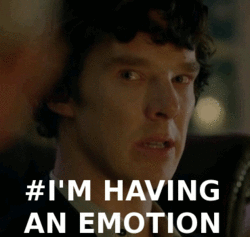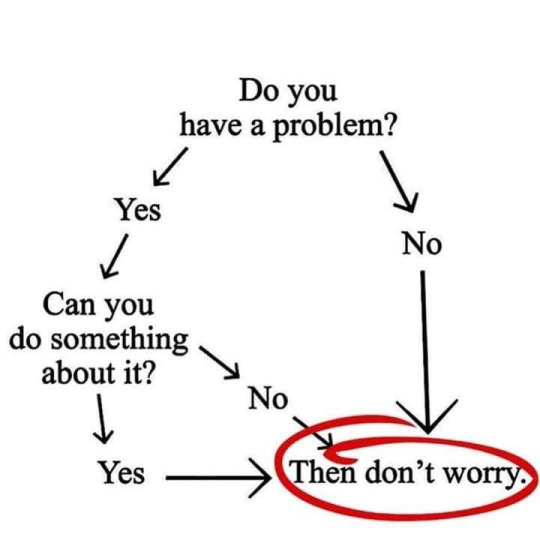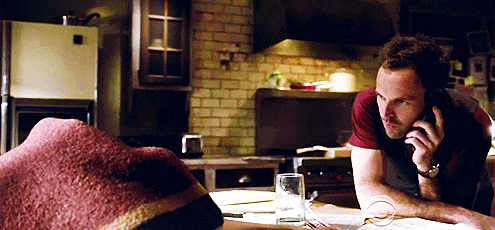Text
Deduction and Programming
Hello everyone!
I’ve recently got myself back into programming and game development. I was also wondering if it will have a positive impact on my deduction skills. And I think I can quite confidently say that it does! Programming isn’t only about being a nerd and writing weird letters and numbers. It’s about problem solving, maths, understanding difficult topics and most importantly about logic. It even helps with creativity. These skills are of great importance to deduction and detective skills as a whole. You need good problem solving and logic skills along with a creative mind to deduce. Game development also has got a lot to do with knowing how people operate and think, and that is also helpful in deduction.
I think we all have heard something along the lines of Sherlock Holmes is like a computer. He thinks in a methodical, logical manner which programming teaches you.
-BH
0 notes
Note
How do you deduce where you or someone else put things? Is it just sort of retracing your steps?
Hello! Good question, i'm also happy to see people actually having further questions from my answers
So regarding how to do so for yourself, yes that's just retracing your steps, but when it comes to other people, things can be a bit more complicted. Usually what you have to do is use an established baseline, knowledge on what the person has done throughout the day, and knowledge on what the object in question is. So knowing what a person usually behaves like when in different mindsets, combining that with where the person has been and what they have done (which you might just know cause you deduce it, or they might just have told you), and combining that with the nature of the object itself you, can narrow down the places where that object can be pretty significantly
So for example if you know that someone paces a lot when they're nervous (and let's assume they were recently nervous), you know they haven't left the house (which again, you might deduce or just be told), you know it's morning so they haven't the room yet, and you know the object in question is a phone. Then you start narrowing down places, can't be in a pocket cause they probably used the phone before going to bed last night, so not in the closet or in any clothes. You know you have to include places further away from the bed because they were nervous recently so they probably have been pacing around the room, even though it's morning and they haven't had a chance to leave the room yet, so desks, shelves, bookcases, etc are on the table. You also know their handedness, so cross out any places that don't align with that (if they're right handed and have two bedside tables then the left one is far less likely, for example, or if it's on the desk the it's probably to the right side of it, which is important information because clutter will build up more on that side, which means the item might be harder to find because of the clutter). If we're assuming this is an object the person themselves can't find that narrows it down more, because it means it's not anywhere they usually place it, you can use this along with info you might collect or already have stored away about them, like for exaple if they charge their phone on the desk it's very likely that the desk has been thoroughly searched, which means you shouldn't necessarily discard it, but it should be lower on the list of places where the phone could be.
Through this process you can pinpoint the most likely places for the object to be located. If you change any of the variables then the parameters change, for example if we're talking about a bigger object, say a purse, then the places for it to be are decreased, just because of the amount of places where one could place a purse where it's not easily visible, for example a phone can be hiding under the covers of the bed, the purse can't. If you change the mindset of the person (and therefore the baseline) then the radius might be reduced, cause if they're sad then they might have just stayed in bed, if they've been angry they might have thrown things around the room, or left it to clear their mind and calm dorn. If you change the places the person has been then the radius increases, and you have to go through this process keeping in mind more variables from different locations.
Obviously more specific situations might include more specific details, that should also be kept in mind, but that's the general gist of it. This isn't necessarily only for when you wanna know where someone's misplaced something, but say you want to find a file in someone's office, or a set of keys to a door in their house, you can use the same process adjusting the parameters accordingly
14 notes
·
View notes
Note
Nice and inspiring.
How long does it usually take you deduce in person? It's good to take your time of course, but how fast can you deduce?
Hello! Good question, so i've never actually timed myself, it's hard to do, but it depends on what i'm actually deducing.
So any individual conclussion i reach can take less than a second or it can take a couple of minutes, it depends on how consciously i need to focus and find explanations for what i'm seeing. Sometimes i look at things and the reasoning and conclusion just pop in my head in the same way that looking at "2+2" just makes 4 pop up. Other times i need to sit down and actually go through the mental monologue of "why is this here? what does this mean?" and having to answer my own questions or look for extra information
In general i'd say full rundowns of a person take me anywhere from 5-10 minutes if i'm not interacting with them, that's without counting any extra information that might pop up in that time (like if they pull out their wallet and give me a whole new object to work with). I do recommend improving your speed as much as possible, my goal is to approach the numbers seen in Sherlock as much as i can, i did a rundown of it and it averages out to about 2 minutes per deduction. I definitely haven't gotten to that yet as an average, but i've definitely deduced things extremely fast
9 notes
·
View notes
Text
rewatching sherlock for the nth time (ik i have a problem) and i’m on s1.02 — where shan kidnapped sarah and john and she’s insisting that john is sherlock.
how did this bitch become a fucking general of a smuggling empire if she can’t even figure out who sherlock holmes is? bitch didn’t even do her fucking research, the dumbass.
9 notes
·
View notes
Text
To See, or Not to See
Today, I want to talk about the choice. Specifically, choosing to see or not to see. Yes, Sherlock Holmes says "You see but you do not observe." but the word "see" has a better rhyme so I will go with that. My purpose with this post is to prove that you are the one who is in control (Mostly) of seeing the details around you. Let's get started.

Your Feelings Don't Matter
I talked about this before in the mindset but I want to point it out again. You can't follow your feelings, emotions etc. Why? Because like Sherlock says "All emotions are abhorrent to me. It is the grit in the sensitive instrument, the crack in the lens." They will hinder your deduction capabilities and your logic.
If you approach a new situation(or a new person like Sherlock does in this example, which we know what he miss here)with prejudices or any biases, you will see what you want to see. You will miss all the important details. So, if you want to see what is in front of you rather than what you want to see, you have to control your emotions.

Choosing to See
If you don't open your eyes physically and mentally, how could you see? That is not a rhetorical question. If you don't want to see your friend's drug habit or your favorite teacher's affair with a student, how could you be objective and act accordingly? You can't. You have to choose to see everything, even if it means you are not going to like it. You can't ignore a possibility just because you want to. If you don't have a solid reason, don't ignore it. Consider every possibility and be willing to see.

Don't Give Up
Situations won't always be on your side. They will most likely interrupt you, stop your reasoning and throw you off. You have to be ready for and reactive to the situations. If a car blocks your physical perspective and you can't observe, change your location. If you can't think creatively, change your mental perspective. Don't accept what is given to you as a certainty, always seek ways to change it.
This post is a short one but that doesn't mean it is unimportant. Apply these to your life and try to maximize your efficiency. Orient the context you are in and realize that you have the power to change it. That's all for now. See you later.
13 notes
·
View notes
Text
First of all to catch a lie they must be comfortable. Then we can look for deviations from their baseline WHILE they’re telling the lie/truth.
Maybe some microexpressions when questions are asked.
And once again. Not making eye contact is not a sign of dishonesty. People learned to keep eye contact when they lie so this is often no longer the case.
-BH
“if somebody becomes panicked when you accuse them of lying theyre obviously not telling the truth” shut up ugly im a survivor who got punished for shit i never did all the time of fucking course im gonna panic when im blamed for something i didnt do
#deduction#observation#sherlock holmes#deductive reasoning#phylosophy#deductions#body language#nonverbal
191K notes
·
View notes
Text
what do you mean i can’t read every book, study every academic subject, taste every food, live in every city in every country, visit every museum, listen to every single song ever produced, learn every language, meet every interesting person, memorize every particle of knowledge to ever exist ???
23K notes
·
View notes
Text
Staying Awake!
The name can be misleading. It sounds like being aware of your environment but no. This post is literally about staying awake. Obviously not during the day but at night.
Let's say you have a lot of work to do and you want to stay awake all night but it is really hard for you even with coffee.(You will be very happy to know that there are ways to stay awake without coffee and even better ways.) You might deduce that I am writing this post while trying to stay awake all night and yes, you are right. Let's see what we can do for long night study sessions.

Coffee is one of the best drinks for a lot of people. It can help you stay awake and be more focused. But if you use it wrong, it can cause even more sleep and you would just consume coffee for the sake of consuming. Let's see some ways to use coffee.(Or any drink that has caffeine.)
1-How to Use Caffeine
First, we have to understand how it works. Normally, when you don't ingest caffeine and stay awake for long hours, adenosine will interact with receptors in your brain and make you sleepy. So, if you want to block adenosine and stay awake for long hours, you would ingest caffeine and that way adenosine won't interact with receptors. But after caffeine starts to decrease, adenosine will come at once and it will make you sleepy very fast. Especially if you ingest caffeine after you wake up. So, what can we do about that?
Don't ingest caffeine in the first 90-120 minutes after waking up. This will help you to avoid afternoon crashes and you will get more benefits from caffeine. Also, if you use it frequently caffeine won't be able to block adenosine so, you would just ingest caffeine and wouldn't get any benefits. For that, you can take a nap in the afternoon and then ingest caffeine.

2-Movement
If you just sit all night and try to stay awake, that would be very hard because your body wouldn't get any signal to stay awake. You have to move regularly, even if it just means you take a 5-minute walk. Walk, run, do some push-ups, boxing etc. Just move. You will be more energetic and focused.
3-Handstand
I would like to write it separately because it is an amazing tool. You can do it on the wall or free. It increases the blood flow to your brain and that way all of the blood on your legs from sitting for long hours spreads through your body. Eventually, it increases focus, energy and overall mood. Give it a try when you feel sleepy and you will see the power.

4-Do not eat too much
If you eat too much, your body creates signals for sleeping and it becomes very hard for you to stay awake. If you have to eat, choose some snacks rather than a whole meal. Fruits and protein bars are very effective choices. They also consist of healthy sugar so your brain will get some glycogen and work more efficiently.

5-Taking Breaks
If you feel tired after working for so long, take some breaks. But be careful when you lie down because you can fall asleep. To avoid that, before lying down, do some exercise and use alarms. Your purpose is not to take a nap but rather to rest your brain, eyes, ears and other body parts you have at your disposal.
There are a lot of amazing tools you can use but to keep it short, I will share them in separate posts. Try these and see how it goes. If you have any questions, send them. For now, that's all. See you.
17 notes
·
View notes
Text
Stoic Perspective
This post will be some kind of addition to mindset, but also very important part. You might be wondering how it is related to deduction and Sherlock Holmes but even though we don't see Sherlock talking about Stoicism, he follows it in most cases. (Mixed with Cynicism which started around the time Diogenes lived.) So, let's see how Sherlock uses and how we can use it in our daily life.

Remember this episode? Season 1 Episode 3. Sherlock solves 5 cases in a row with some time constraints, stress factors, etc. In one scene, Watson asks, "There are lives at stake Sherlock! Actual human lives. Just so I know, do you care about that all?" and Sherlock answers with a brilliant answer: "Will caring about them help save them?" and Watson says "Nope." and then Sherlock says "Then I will continue not to make that mistake." Obviously, they show it like Sherlock doesn't care about anyone and is an egocentric narcissistic robot but that is certainly not the case. If you watch other adaptations(Granada, Elementary or even the books)Sherlock cares about other people, but not in a way normal people do. I am pointing out this scene because it shows us the attitude and mindset of Sherlock. Let's see how we can apply this in real life:

1-Caring without Emotions
"Emotional qualities are antagonistic to clear reasoning."
-Sherlock Holmes
After watching Sherlock we shouldn't try to be like Sherlock, especially if we don't understand how he thinks. When he says, caring won't save them it doesn't mean he doesn't care. It just means it is not relevant and emotions won't help them in any way because it will cloud his thinking and deductions. So, what can you do in situations where stress is high and your emotions come to the surface?

1-Recognize them: Don't suppress or act like you don't have them. Just realize they are there and act accordingly. If you say "There is nothing wrong with me. I don't feel any emotions right now..." then you won't be aware of the affect they have on you.
2-Think Clearly: It is easy to say but hard to do. How can we think clearly? What does it mean? It means you have to use the relevant data and eliminate what is not. If you want to think clearly, you have to recognize your feelings, emotions etc. You have to be aware of them at every step so that when they are affecting your reasoning, you can overcome them and keep going.
3-Follow Your Logic
Sherlock doesn't call Moriarty after he solves the case because he wants to use time advantage. He wants to work on other cases and because of that, he doesn't call Moriarty. Watson is reacting with emotions and says this woman was covered with bombs all this time. Although Sherlock cares about the woman, he follows the logic. If he uses the time to his advantage, he can save more than one life but if he reacts with emotions, he will just save one. So, use your logic and act accordingly.
2-Perspective For Problems
"External things are not the problem. It's your assessment of them. Which you can erase right now."
-Marcus Aurelius
This can change a lot of things about how you see your problems. Let's say you have a lot of work to do and after a long day you are going home. When you arrive there, you realize your house is on fire? How would you react?
I believe, most of us would be full of emotions. Why did this happen to me? Why is life not fair? My life is over. What will I do now?
But if we just can change our perspective and practice it in our daily life we would have a very different and constructive response to the situation. Now, here is the perspective I am talking about:

Now think about the same scenario. You see that your house is on fire. You think "Can I do something about it?"->"Yes. I can call the fire department." or "No. It is too late. Everything is turned to ash." In both cases, you don't have to worry because it is already done. You can't travel back in time so you have to create your plans for the future. You can't waste time thinking about the past because it will limit your capacity to act on the future.
If you use this perspective in every situation, eventually it will become automatic and your emotional reactions will not be as strong as it is now. This way, you will be able to use your logic more easily and solve the problem you have.(Or you will stop worrying if you don't have a problem.) This is probably the fundamental perspective of Stoicism.

3-Expressing Emotions
I won't go deep into the Jungian Shadow or deep psychology of the emotions and suppressing etc but we have to be aware of this fact: The fact that if you don't express your emotions in some way, it will come out later bigger than it was.(Also, you won't be in control.)
If you watched Elementary, you know that almost in every episode Sherlock express his emotions to Watson.(Or to someone else. Which by the way is a more human adaptation of Sherlock.)He talks with her about what he feels and thinks about the situation because he can't deal with them alone. We can't deal with them alone too so we have to find some ways to express them. Here are some basic ones:
1-Talking to your Watson
If you have someone you are close to, then talk to them. Explain your feelings and emotions as clear as you can be.
2-Keeping a Journal
You won't always have an opportunity to talk with somebody so you need to talk with yourself clearly, which is what journaling does. You use words and getting things out of your head so you can analyze them more clearly. Just write and then read them aloud.
3-Physicality
If you like to work out, run, go to the gym or do any physical activity, do it. It is especially useful for anger and sadness. Try and find whatever works for you.

So, that is a general look at emotions and how to live with them. After you read this, you won't immediately detach from your emotions and act with your logic. This post is not enough, so you have to do your own reading. Some suggestions for reading:
Meditations-Marcus Aurelius (Excellent example of journaling in a stoic way.)
The Handbook-Epictetus
Ryan Holiday's books(All relates to Stoicism)
And one last thing. Always remember these wise words:
"You have power over your mind, not outside events. Realize this and you will find strength."
-Marcus Aurelius
21 notes
·
View notes
Note
Can you deduce sexuality?
Hello! i think i'm gonna have to make a post about these "can you deduce..." questions cause the answer's technically always the same: yes
By it's very nature, deduction can be applied to anything, this is sort of like asking "can you drive me to [insert location]", the answer's technically always yes, it just depends on if you know the route, if you now the place you're in well enough, if you have a map or gps, if you have a car, if you have gas, etc. But assuming everything's in order and you know what you're doing, yeah you can drive basically anywhere that's not cut off by a whole ocean. In the same way, as long as everything's in order, you have the right skills, and you know what you're doing, yes, you can deduce basically anything
Now, to focus on sexuality specifically, like every other question i've answered (and probably will keep answering) about how to deduce specific stuff, it's just a matter of using what's available to you. Ask yourself, objectively, what would be connected to sexuality, and then look for those things
For example, any sexuality apart from heterosexuality has strong connections to the LGBTQ+ community, and people who have strong connections to that community tend to want to showcase it using pins, or stickers, or pronouns in their bio, or a plethora of other stuff. Now, does this mean that's irrefutable proof that someone's gay for example? no, but it's one clue that gets you closer to that potential conclussion. Now say that this person has a pin of the gay pride flag, well there you go, there's not many other explanations for that, you deduced that they're gay, not a difficult deduction, but a deduction nonetheless.
Assuming the situation is more complex than that, well you'll need to find more evidence, what other things are related to different sexualities? Well, at least when we deal with straight, gay, lesbian, and bi individuals who don't fall into the handful of categories that involve having to know someone or their personality to experience physical attraction, then you're gonna see them show signs of being physically attracted to certain people. Anything from the typical dilation of pupils and elevated heart rate, to just straight up checking people out, and that might just be a dead give away. Basically what i'm trying to get at is: like everything else in deduction, look for adjacent things that point towards what you're trying to find out
7 notes
·
View notes
Note
"Would do anything just to not be bored."
Have you tried meth?
Prefer tea
1 note
·
View note
Note
здравствуйте, вы знаете, как определить измену?
Hello! fascinating that you decided to ask this in what seems to be russian, but i'll answer it regardless. For anyone that doesn't speak russian they're asking how to tell if someone's cheating.
Now, this kind of thing is sort of like the whole deal of telling if someone's lying. You're not gonna find anything that tells you someone's cheating with 100% certainty, there's no clue or residue one can identify that inherently points towards cheating, just like there's no body language cue or facial expression that points towards someone lying. Rather you're gonna want to use the tools at your disposal to look for clues that are specific to the situation you find yourself in, things that don't add up, contradictions between what you're deducing and what this person is trying to make people believe
Lying, cheating, and similar topics all fall into higher level deductions, because they require you to be able to trust your deductions over what other people tell you, they require you to find contradictions between what you see and what people want you to believe, and having the skills and track record to confidently believe what you see rather than what you're told.
No one's ever gonna tell you if they're cheating, but if they get home wearing a different perfume or deodorant than usual then that's a clue, or if they dress up as if going out for a date more often than usual, or if they show signs of having gone out to dinner while claiming they haven't eaten. All of these point towards lies, then it's your job to figure out what motivates those lies to figure out if it's cheating or not
At the end of the day it's all about being able to know when someone's lying to you by using what you can observe. as Dr. House once very eloquently said: "The eyes can deceive, the smile can lie, but the shoes will always tell the truth", people will lie to you, but your deductions (if well formed and made with the right skill level) won't
17 notes
·
View notes
Text
True, it is like a language, a cypher, a mystery everywhere, yet it is quite difficult.
Deductions are cool.
As someone who's learning the science of deduction, it feels like how I imagine it would be like to not know how to read. A world of signs, of letters and words forming information if you just knew how to decode it. Learning to make deductions feels like finally learning to read, finally really seeing everything around you and connecting it to things to get information.
It's like learning a new language, one that's everywhere, all the time, just ready for you to notice. There's so much to be gained from that language, I think it's beautiful, and I'm happy to have one more way to quench the thirst for knowledge.
22 notes
·
View notes
Text
General question to reblog and tell me in the tags;
You go into a used bookstore - what are the two sections you head to first?
7K notes
·
View notes
Text
I think that you feel like you need to carry these things around with you. So the theory still works. But yes, it could throw someone off probably if they didn’t take that into consideration that’s why you’d look for more evidence confirming it.
-BH
Deduction Tips #16
The size of a bag is indicative of how much a person needs to carry, and usually we prefer to carry less things. When you see someone with a bag (be it a backpack, a purse, or anything else) think about why this person needs a bigger one rather than a smaller one, and what that says about the contents of the bag and the situation of the person carrying it
44 notes
·
View notes
Text
Deduction Tips #16
The size of a bag is indicative of how much a person needs to carry, and usually we prefer to carry less things. When you see someone with a bag (be it a backpack, a purse, or anything else) think about why this person needs a bigger one rather than a smaller one, and what that says about the contents of the bag and the situation of the person carrying it
44 notes
·
View notes
Text
Same, just know I may not be the best in comforting.
Reblog if it's okay to befriend you, ask questions, ask for advice, rant, vent, let something off your chest, or just have a nice chat.
please, please and please.
2M notes
·
View notes